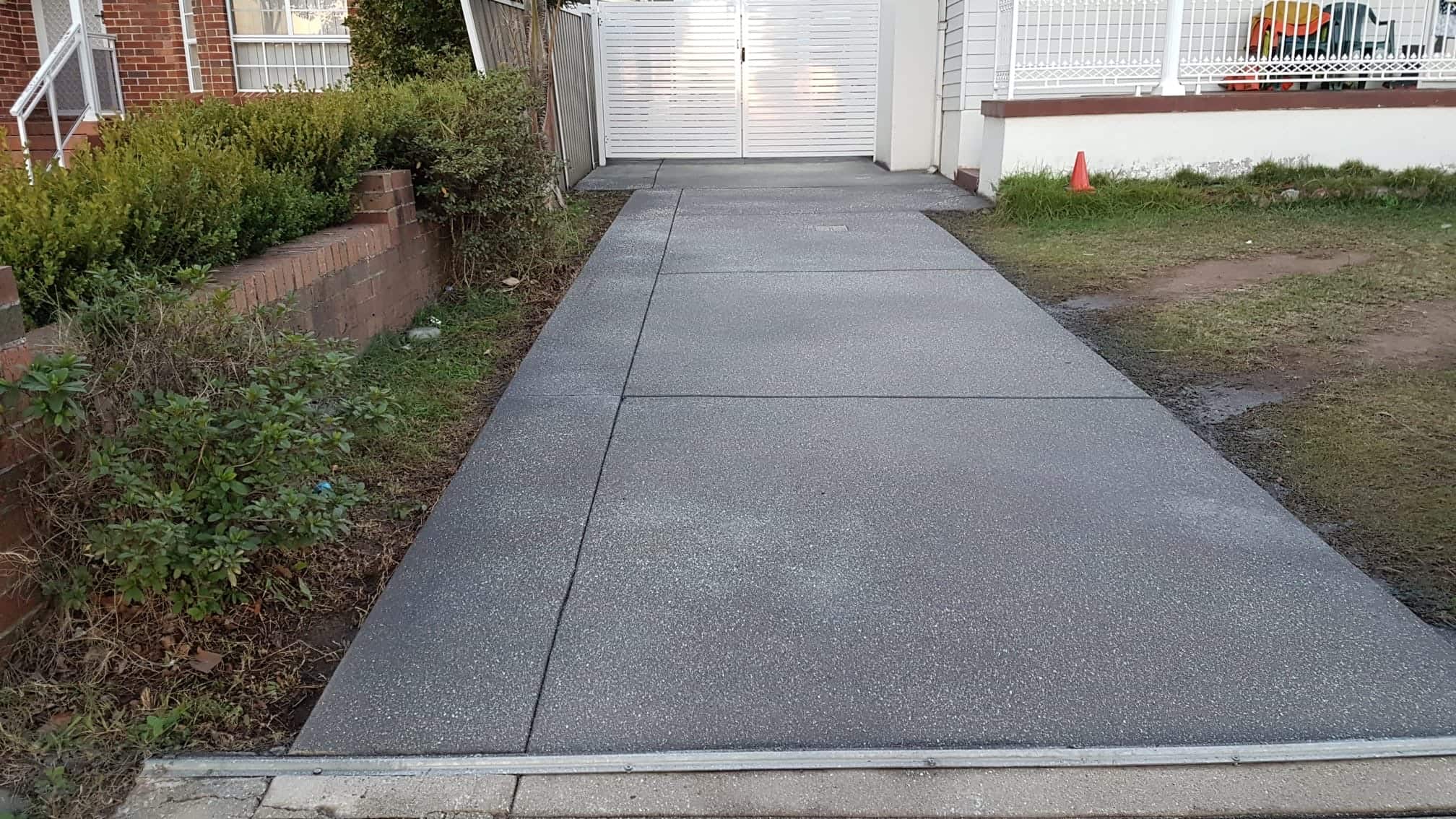Concrete will perform well if it is not sealed. However, sealing concrete every few years can extend its life span and keep it looking great. This is especially important if your concrete patio or driveway has a stained or etched surface. If you live in an area that is susceptible to winter salt, driveway sealing may be an option.
Concrete doesn’t need to be sealed in order to perform well. However, the added benefits of sealing your driveway with a high-quality sealer are worth the extra cost per square foot. These are the reasons:
Sealing a driveway will not only prolong its service life but also enhance the color and gloss of decorative concrete.
Concrete is a popular material for a driveway. Concrete is stronger and more durable than asphalt. Concrete driveway sealers are more costly than asphalt, but they are easier to maintain and don’t need to be resealed nearly as often.
Concrete driveway sealers can protect against freeze-thaw cycles. The most damaging effect of freeze-thaw is usually the concrete. Concrete is porous, and water can penetrate it when snow or ice melt. This absorbed water, when it repeatedly melts and freezes, exerts enormous expansive force which causes concrete to crack, pitt and scale.
A concrete driveway sealant is a good investment. Many homeowners opt not to seal their driveways for a variety of reasons. They may feel that sealant is unnecessary or they don’t realize the benefits. Many homeowners have never applied sealant before. The process can be tedious and time-consuming, especially if you are dealing with low-quality sealants. Professionals can apply a high-quality sealant to your driveway and remove most, if any, of the annoyances.
Different types of concrete sealers
No matter if your driveway is made of gray concrete or colored concrete or has a stamped design, sealing the concrete after it has cured is a recommended part of your maintenance routine. If you desire a glossy shine and rich color, a sealed concrete driveway will be achieved.
Be aware that there are many types of concrete sealers. It is important to distinguish between an acrylic resin-based sealer and epoxy or polyurethane sealing agent.
Acrylic resin-based sealers are excellent for their price. They apply a thin film of acrylic resin to protect the product. To increase the product’s durability, they can be mixed with epoxy, silicone, or polyurethane. Please read labels. There are many types of acrylics and not all are the same. Styrene acrylic may yellow in direct sunlight and is therefore a lower-performance product. Virgin or pure acrylic resin is a better option. It will last longer and won’t turn yellow.
Polyurethane or epoxy sealers: Although more expensive than acrylic sealers, these types of sealers last longer. They provide excellent protection against chemical spillages and abrasion, but are less resistant to UV rays.
Coal Tar Sealers: This standard sealer has been used for asphalt driveways and streets since the 1970s. They are made from coal tar which is a sticky, black substance that comes from bituminous coal. Coal tar is a thick, syrupy black liquid that forms a hard surface on asphalt. It requires equipment to heat the tar and liquefy it.
Some states and communities have banned the use of coal tar sealers. They aren’t considered to be environmentally friendly. For months, a driveway that has been resurfaced with coal tar sealer might emit a tar-like smell. Although a coal-tar sealer is very durable and will protect your driveway, once it cures, it won’t be flexible so it will not expand or contract.
Penetrating sealers: A penetrating sealer can be used to treat a mature driveway. Concrete becomes more absorbent as it ages. A penetrating sealer is absorbed into the concrete to form a barrier that keeps water from getting in. Blocking water helps reduce salt damage and the winter freeze-andthaw cycle. A 5-gallon container of penetrating sealers costs $90 and can cover 500 square feet if applied to smooth surfaces such as garage walls. You might only get 200 square feet coverage on a more rough surface.
Last Thoughts
Safety is the most important consideration when sealing driveways. Once the sealer has dried, you want the driveway to be slip-resistant. When the sealer is dry, most driveway sealers will meet federal standards. This doesn’t take into account how slippery the sealer surface can be when wet. A penetrating waterproofing product is better than a film-forming one for maximum safety. The concrete surface will remain smooth and unaffected by the penetrating sealer. To ensure safety, test the sealer on a small area of your driveway in dry and wet conditions.


Comments are closed